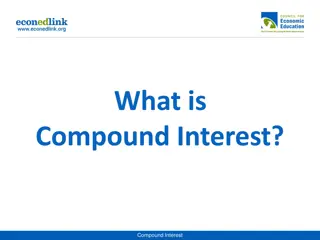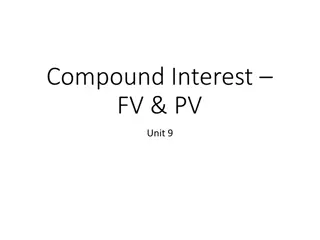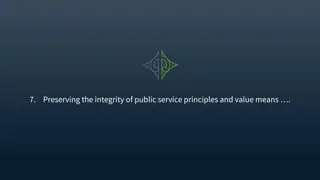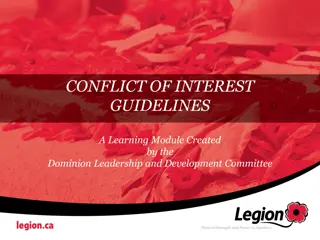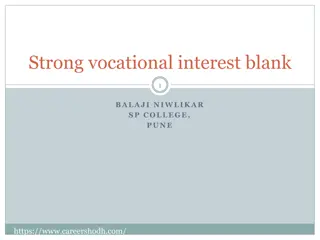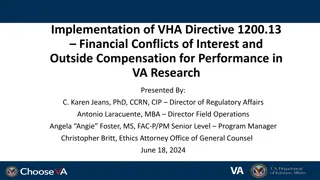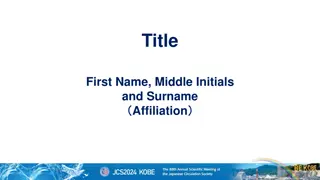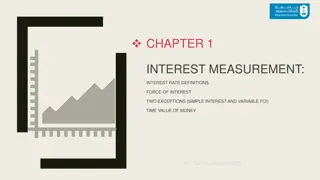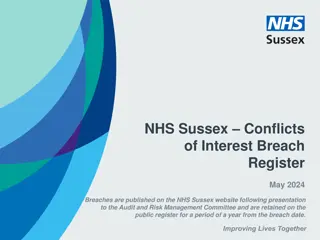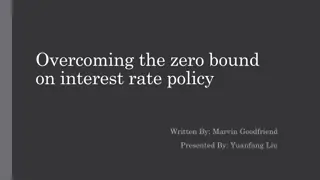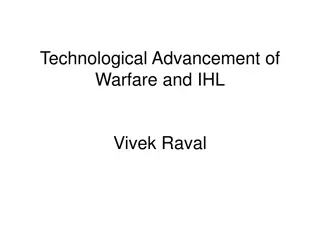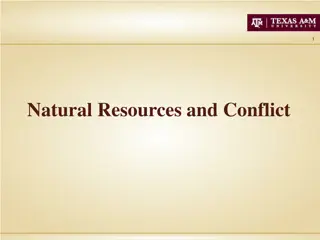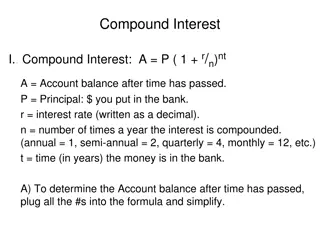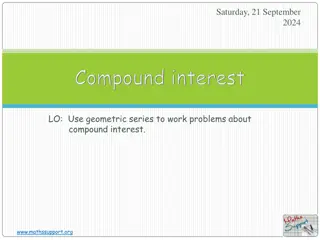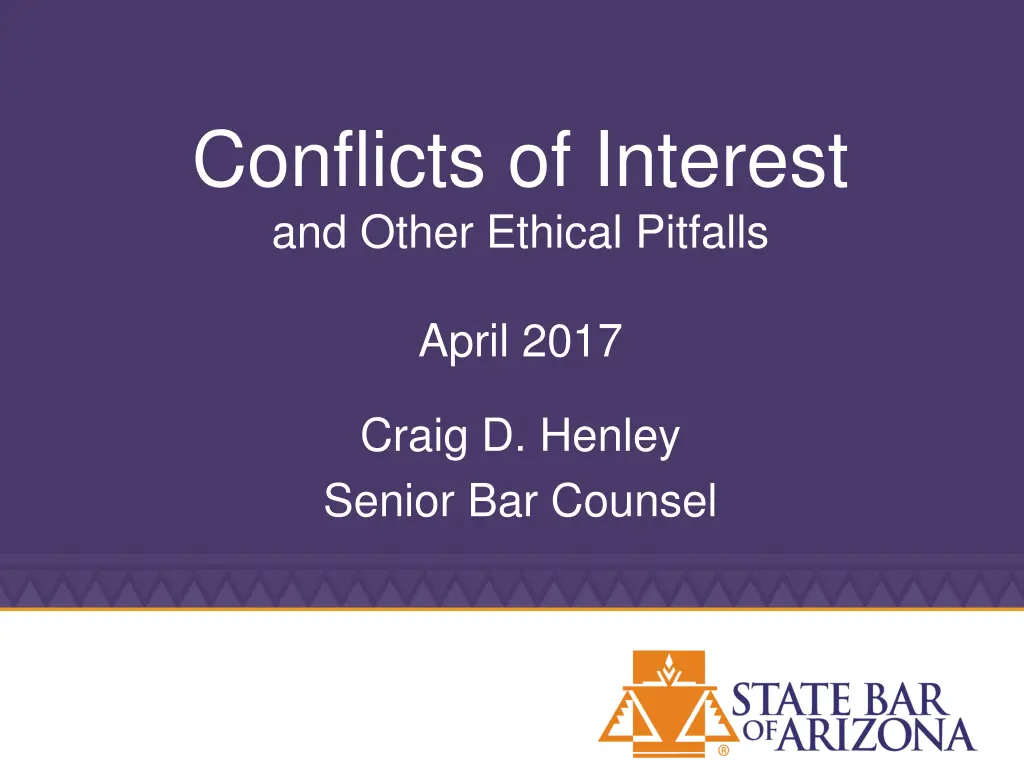
Ethical Pitfalls in Legal Practice: Conflicts of Interest and Complaints Analysis
Explore the ethical challenges in the legal profession, focusing on conflicts of interest and common complaint issues such as client dissatisfaction and areas generating charges. Understand the rules and guidelines to navigate conflicts effectively and maintain professional integrity.
Download Presentation

Please find below an Image/Link to download the presentation.
The content on the website is provided AS IS for your information and personal use only. It may not be sold, licensed, or shared on other websites without obtaining consent from the author. If you encounter any issues during the download, it is possible that the publisher has removed the file from their server.
You are allowed to download the files provided on this website for personal or commercial use, subject to the condition that they are used lawfully. All files are the property of their respective owners.
The content on the website is provided AS IS for your information and personal use only. It may not be sold, licensed, or shared on other websites without obtaining consent from the author.
E N D
Presentation Transcript
Conflicts of Interest and Other Ethical Pitfalls April 2017 Craig D. Henley Senior Bar Counsel
Who is Complaining? 52% of the time it is the client 20% of the time it is the opposing client 4% of the time it is the opposing counsel
What are they complaining about? 15% Communications 15% Diligence 10% Lack of compliance with client directions 9% Fees 8% Conduct prejudicial to admin. of justice 6% Dishonesty 3% Conflict of Interest
What areas generate charges? 35% Criminal Law 11% Family Law 8% General Civil Practice 6% Personal Injury 5% Probate/Estate Planning 5% Trust Account
Conflicts of Interest ER 1.7 ER 1.8 ER 1.9 ER 1.10 ER 1.11 ER 1.18
Conflicts of Interest Rule 42, Ariz. R. Sup. Ct., ER 1.8: (a) No business transactions with a client or acquired interest adverse to client unless: (1)transaction and terms are fair and reasonable/fully disclosed/transmitted in writing, (2)the client is advised in writing of the desirability of seeking and is given reasonable opportunity to seek independent counsel on the transaction, and (3) the client gives informed consent, in a writing signed by the client; (c) No solicitation of any substantial gift , including a testamentary gift; (e) No financial assistance except: (1) costs of litigation, the repayment of which and (2) indigent clients (f) No payment by non-client unless: (1) informed consent, (2) no interference with independence, and (3) information is protected by ER 1.6 (h) No agreements limiting liability for malpractice or discipline; (j) No sex with clients.
Conflicts of Interest Having an effective conflicts checking system is vital Parties should always be included Should include Individuals and Companies Also wise to include Witnesses May want to include non-party spouses Conflicts come in three main flavors: Potential clients [Online submissions] ER 1.18 Current clients ER 1.7 Former clients ER 1.9
Conflicts of Interest ER 1.18 Governs prospective clients If they ve given you information, you can t reveal such information You also can t represent adversely to them in a related matter or where the information would be harmful to them This conflict generally is waivable This conflict can sometimes be cured by screening [ER 1.18(d)]
Conflicts of Interest ER 1.7 Governs current clients Can t represent if directly adverse to each other Driver & passenger often creates issues Can t represent if significant risk your duties to someone else or own personal interest would risk materially limiting the representation Waiver of conflict? Only if you ll still be able to properly represent each client and there s not a claim by one client against the other in the same case
Conflicts of Interest ER 1.9 Governs former clients Can t represent another client against former client in the same or substantially related matter Can t use or reveal any information relating to the former representation [See also ER 1.6] So if you have info, you have a conflict. Waiver of conflict? Yes. Informed consent in writing generally permits
Informed Consent & Confirmed in Writing When a conflict is waivable, Rules often refer to above- referenced terms. Informed Consent : Denotes the agreement by a person to a proposed course of conduct after a lawyer has communicated adequate information and explanation about the material risks of and reasonably available alternatives to the proposed course of conduct. Confirmed in Writing : When used in reference to the informed consent of a person, denotes informed consent that is given in writing by the person or a writing that a lawyer promptly transmits to the person confirming an oral informed consent. If it is not feasible to obtain or transmit the writing at the time the person gives informed consent, then the lawyer must obtain or transmit it within a reasonable time thereafter.
In re Stanley, PDJ 2016-9059 In both counts of the Complaint, Mr. Stanley represented the named defendant in a lawsuit and later filed a Substitution of Counsel in order to allow him to represent a named corporate plaintiff in place of opposing counsel. Mr. Stanley then filed a Notice of Dismissal on behalf of the corporate plaintiff dismissing all claims against the named defendant. One week later, Mr. Stanley filed a separate lawsuit derivatively on behalf of and for the benefit of the corporate plaintiff. As a result of his actions, the Superior Court judge sanctioned Mr. Stanley $19,298.50 plus interest until paid.
Sanction Reprimand and Two Years of Probation for violating Rule 42, Ariz. R. Sup. Ct., ERs 1.7(a)(2), 3.1, 3.2, 4.4(a) and 8.4(d). Terms of Probation included participation in the Law Office Management Assistance Program (LOMAP) and the Member Assistance Program (MAP) along with costs and expenses totaling One Thousand Two Hundred Seven Dollars and 56/100 ($1207.56).
Where To Get Help? Where can you go for help? Ethics Hotline 602-340-7284 MCLE 602-340-77327 Unauthorized Practice of Law 602-340-7292 Fee Arbitration 602-340-7379 Law Office Management Assistance 602-340-7332 Membership Records 602-340-7239 Report Attorney Misconduct 602-340-7280



